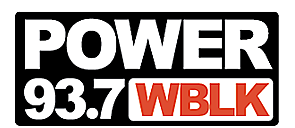
DJ Hassan’s Financially Fit Interview: How to Improve Your Credit Score
Credit scores can be tricky. They are used to determine loan interest rates and credit card applications. Sometimes even referenced for lease applications, but many consumers are confused about what their credit score is and how to improve it.
That's why I sat down with Robert Cornelius, KeyBank Conventus/Buffalo Medical Campus branch manager. You can listen to our full conversation here:
We often hear about someone’s credit score. What is that number and what does it say about you?
Credit scores are created by taking information from credit reports and analyzing that data to forecast how someone is likely to behave in the future. Your score is determined by factors like how much debt you carry, and whether you’ve paid your bills on time. The highest score you can have is 850 and anything above 700 is considered average.
Why is it important to have good credit?
Mortgages and car loans require credit. But you may not know how to start building credit. You need access to credit lines to get good credit, but a credit line can be hard to get if you don’t already have good credit.
If you don’t have a credit card, what is a good option that can help you start?
A secured credit card is a great option for people looking to build or rebuild their credit score. With a secured credit card, you put a sum on deposit at the issuing bank, either a percentage or the equivalent of the credit line. For example, a credit card issuer might request a $250 security deposit for a $250 credit line. This way, the bank has the money for the balance of your charges on deposit at all times, making you a less-risky person for them to issue a credit card to.
What are some easy things you can do to improve your credit score?
The most important thing… pay your bills on time: A single payment made 30 days late can have a significant impact on your credit score. Set reminders in your calendar for five days before any payment is due so you can schedule a payment online. On-time payments mean an easier road to building credit.
If you're having trouble paying your bills, there are steps you can take to soften the blow to your credit score and buy some time to get your money management back on track. Most credit card issuers offer hardship programs that will cut customers a break – in the form of adjusted due dates, reduced interest rates or waived fees – when they lose a job, incur unexpected medical expenses or encounter other financial challenges. But you'll need to contact them early to request this help.
Also, make sure that you never spend or charge more than you can pay off in a single month.
Think a secured credit card is a good option for you? Click here to learn more about KeyBank's secured credit card.
More From 93.7 WBLK









